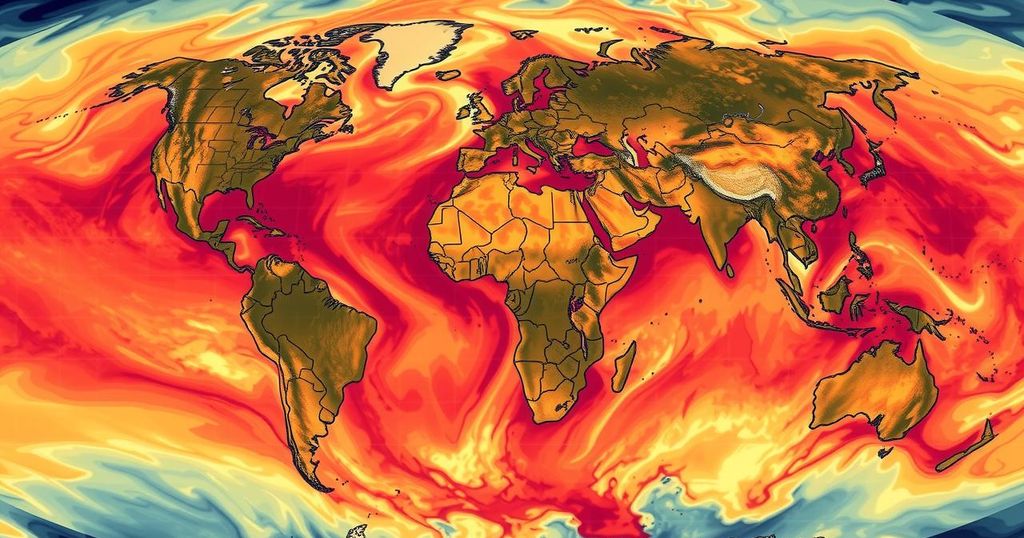The Copernicus Climate Change Service has confidently predicted that 2024 will be the warmest year on record, succeeding 2023, as it will also exceed the critical 1.5 degrees Celsius threshold. The global climate is believed to be at its warmest in 125,000 years, with increasing extreme weather events, illustrating the gravity of the climate crisis the world faces despite international climate agreements.
The Copernicus Climate Change Service has declared that 2024 is predicted to be the hottest year on record, exceeding the temperatures of 2023. This assessment is based on significant global heat trends observed between January and November of this year. Notably, 2024 will also likely be the first year in which average global temperatures surpass the critical 1.5 degrees Celsius threshold, a vital mark established to mitigate the impacts of climate change.
Recent data indicates that the current climate conditions are among the warmest experienced on Earth in the past 125,000 years. Every region, including Portugal, has reported record temperatures, with recent data showing November 2023 to be the hottest on record globally.
The Copernicus agency emphasizes the alarming trajectory of climate change, stating that not only is the world not on target to limit warming to 1.5C, but it is heading towards a potential increase of 3.1C as per United Nations warnings. Such extended temperature increases are perceived to disrupt delicate ecosystems and endanger global welfare.
Moreover, despite international commitments to reduce carbon emissions, the cutting back of fossil fuel usage is moving at a sluggish pace. Consequently, climate change continues to exacerbate extreme weather events and natural disasters worldwide, including recent devastating floods and hurricanes.
This report from the Copernicus Climate Change Service serves as a warning regarding the ongoing challenges of climate change, specifically highlighting the troubling rise in global temperatures. Amidst the crisis, global commitments made under the Paris Agreement are proving insufficient as many nations struggle to curb fossil fuel emissions. The projections from the agency signal a concerning reality in which average global temperatures could significantly exceed safe limits, bearing serious implications for the planet’s future.
In conclusion, the assertion by the Copernicus Climate Change Service underscores an urgent climate crisis highlighted by the forecast that 2024 will eclipse all previous temperature records. The surpassing of the 1.5C threshold poses severe risks that threaten ecosystems and society alike. As the world remains poised at a critical juncture, the continuation of fossil fuel reliance, despite commitments to a sustainable future, complicates any attempts to mitigate these rising temperatures.
Original Source: www.aljazeera.com







